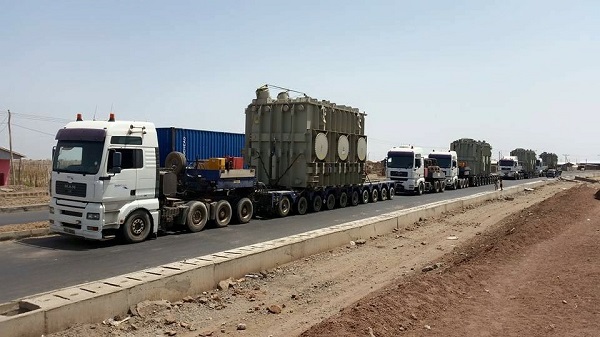The Addis-Djibouti corridor will be upgraded as The Horn of Africa Initiative’s Regional Economic Corridor Project receives USD 730 million to transform key trade route.
The Addis-Djibouti corridor, a pivotal trade route essential for Ethiopia’s economic growth, is set to undergo a significant upgrade through the Horn of Africa Initiative’s Regional Economic Corridor Project. Endowed with a USD 730 million grant from the International Development Association (IDA), the project aims to boost regional connectivity and logistics efficiency in Ethiopia, facilitating trade and fostering inclusive growth in the region. The corridor connects landlocked Ethiopia to the port of Djibouti.
The World Bank‘s International Development Association (IDA), established in 1960, helps the world’s poorest countries by providing grants and low to zero-interest loans for projects and programs that boost economic growth, reduce poverty, and improve people’s lives.
Improving vital trade routes
With over 95% of Ethiopia’s import-export trade relying on the Addis-Djibouti corridor, upgrading its infrastructure is crucial for unlocking Ethiopia’s economic potential. The project targets the enhancement of the road to Djibouti, particularly the Mieso-Dire Dawa section, which currently hampers smooth truck traffic flow due to its poor condition.
By transforming this section into a four-lane expressway, transport time will reduce significantly, road safety will improve, fuel and maintenance costs will decrease, and pollution levels will drop. This upgrade is not only pivotal for Ethiopia’s economic growth but also essential for its social development, as it will enhance the capacity and efficiency of this vital trade route.
Fostering competitiveness through logistics efficiency
The Project aims to enhance Ethiopia’s trade competitiveness by implementing regulatory and institutional reforms, investing in logistics facilities, and bolstering the government’s capability to promote the shift towards railways. Moreover, the Project will offer opportunities for private sector participation in operating freight truck terminals. These measures will streamline logistics operations, reducing bottlenecks and increasing efficiency, further boosting Ethiopia’s position in regional and global trade.
Empowering local communities and long-term development
As part of its comprehensive approach, the Project includes investments in secondary roads that connect local communities to the main corridor. This move not only generates job opportunities for underserved communities and women, but also contributes to long-term development outcomes. By bolstering connectivity and accessibility, the Project lays the groundwork for sustainable economic growth and prosperity throughout the region.
The Addis-Djibouti corridor project – A transformative initiative
“The Addis-Djibouti Regional Economic Corridor project is one of the priority operations that we are supporting in the Horn to help connect hinterland to ports and markets, and to increase opportunities for regional trade. It’s expected outcomes extend beyond economic growth and social development in Ethiopia, as it will enhance regional integration and generate spillover benefits for the entire region,” said Boutheina Guermazi, World Bank Director for Regional Integration for Africa and the Middle East.
The approval of the Horn of Africa Initiative’s Regional Economic Corridor Project, with its generous USD 730 million grant from the IDA, marks a significant milestone for Ethiopia’s trade and connectivity ambitions. The planned upgrades to the Addis-Djibouti corridor promise to unlock economic potential, enhance regional trade, and foster long-term development outcomes.
For more infrastructure and trade news, visit our dedicated archives.
